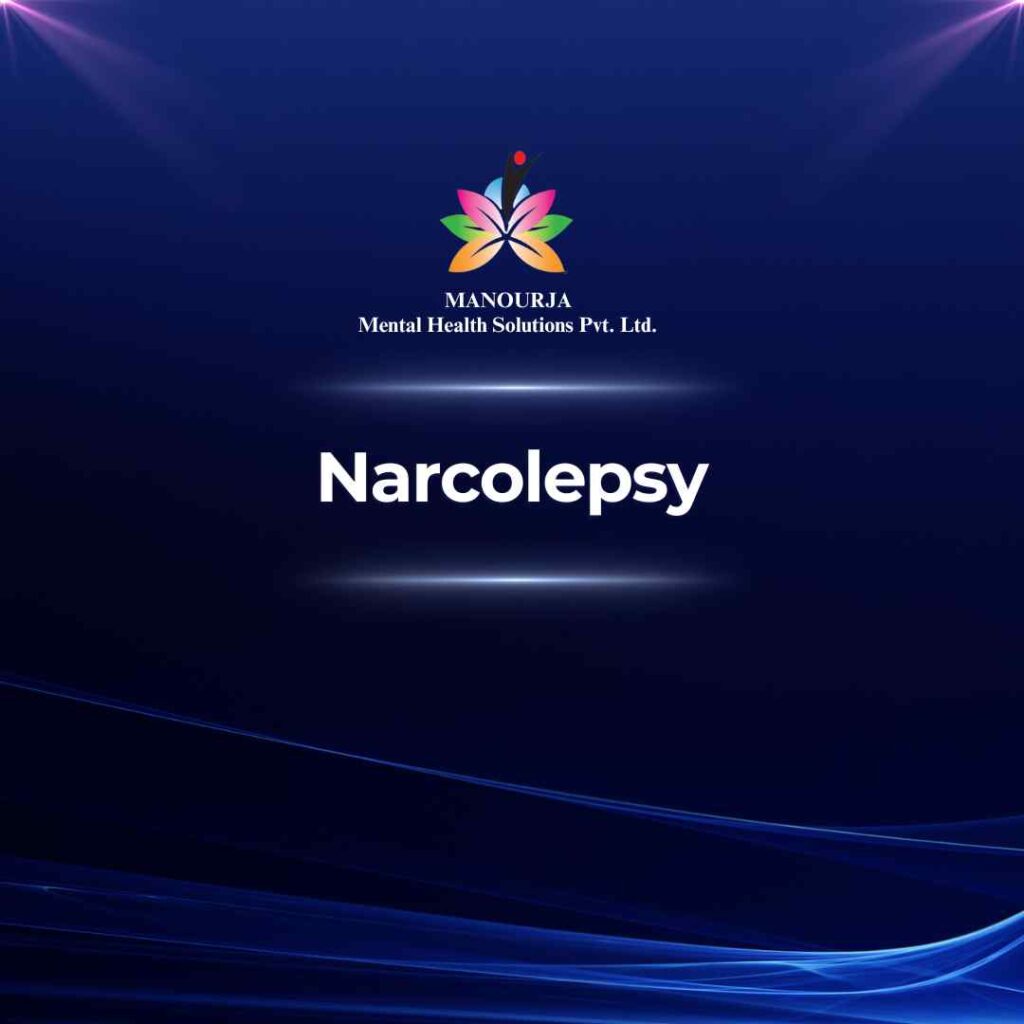Narcolepsy
v

Narcolepsy is a chronic neurological disorder that affects the brain’s ability to control sleep-wake cycles. This condition can significantly impact daily activities, although it is less common than other sleep disorders like insomnia and sleep apnea.
Symptoms of Narcolepsy
- Excessive Daytime Sleepiness (EDS): The most telling symptom of narcolepsy is an overwhelming sense of tiredness during the day, even after adequate nighttime sleep. People with narcolepsy may experience “sleep attacks,” which are uncontrollable and sudden bouts of sleep.
- Cataplexy: This is a sudden, temporary loss of muscle tone triggered by strong emotions, typically positive ones like laughter or excitement. Not all people with narcolepsy experience cataplexy, but it is a distinctive symptom that can help in diagnosis.
- Sleep Paralysis: The temporary inability to move or speak while falling asleep or upon waking. These episodes are generally brief but can be frightening.
- Hallucinations: Vivid and often scary visual, auditory, or tactile sensations while falling asleep or upon waking (hypnagogic and hypnopompic hallucinations, respectively).
- Fragmented Sleep: Despite the stereotype of “excessive sleepiness,” many people with narcolepsy do not sleep well at night. They often experience interrupted sleep that includes frequent awakenings.
- Automatic Behaviors: Performing routine tasks without conscious awareness, and often not remembering doing them.
Forms of Narcolepsy
- Type 1 Narcolepsy: Previously known as narcolepsy with cataplexy. This type involves the presence of cataplexy and is often associated with low levels of the brain hormone hypocretin (orexin), which is important for regulating arousal, wakefulness, and appetite.
- Type 2 Narcolepsy: Known as narcolepsy without cataplexy. People with this type do not experience cataplexy and usually have normal levels of hypocretin. Symptoms generally include daytime sleepiness and related manifestations but without the muscle weakness triggered by emotions.
Treatment of Narcolepsy
Narcolepsy is a lifelong condition that currently has no cure, but its symptoms can be managed with medications and lifestyle adjustments. Treatment strategies include:
Medications:
- Stimulants: Drugs like modafinil (Provigil) and armodafinil (Nuvigil) are commonly prescribed to combat the excessive daytime sleepiness.
- Sodium Oxybate (Xyrem): Approved for the treatment of cataplexy and excessive daytime sleepiness in narcolepsy. This medication helps improve nighttime sleep, which can reduce daytime symptoms.
- Antidepressants: Medications such as selective serotonin reuptake inhibitors (SSRIs) or tricyclic antidepressants are often used to treat symptoms of cataplexy, sleep paralysis, and hallucinations.
Lifestyle Changes and Behavioral Strategies:
- Scheduled Naps: Planning one or more short naps during the day can help control daytime sleepiness and manage the overall impact on daily functioning.
- Good Sleep Hygiene: Maintaining a regular sleep schedule, creating a comfortable sleep environment, and avoiding caffeine and heavy meals before bedtime can help improve night sleep quality.
- Avoidance of Alcohol and Smoking: These can worsen the symptoms and disrupt sleep.
Support and Counseling:
- Psychological support or counseling can help individuals cope with the social and psychological strains of narcolepsy.
- Education and awareness-raising for the patient’s family, friends, and employers are essential to adapt the environment for managing this disorder effectively.
Regular follow-up with healthcare providers is crucial to monitor the effectiveness of treatment and make necessary adjustments. With appropriate management, many people with narcolepsy can lead full and active lives.
At MANOURJA, we believe in the transformative power of counseling. Our experienced therapists offer a safe and supportive space where you can explore your thoughts, emotions, and challenges. Through personalized counselling sessions, we’ll work together to develop coping strategies, build resilience, and achieve lasting positive change. Discover the path to a healthier, happier you with MANOURJA counselling services.
MANOURJA Rehabilitation Services
At MANOURJA, we’re dedicated to helping you in rebuild your life, after difficult times. Our rehabilitation services focus on understanding what you need to move forward, whether you’re recovering from addiction, trauma, or any psychological – social challenges. We create personalized plans, that are all about helping you, regain your strength and find hope again. With a caring team by your side, you’ll have the support to make real progress and take steps toward a brighter, healthier future.
